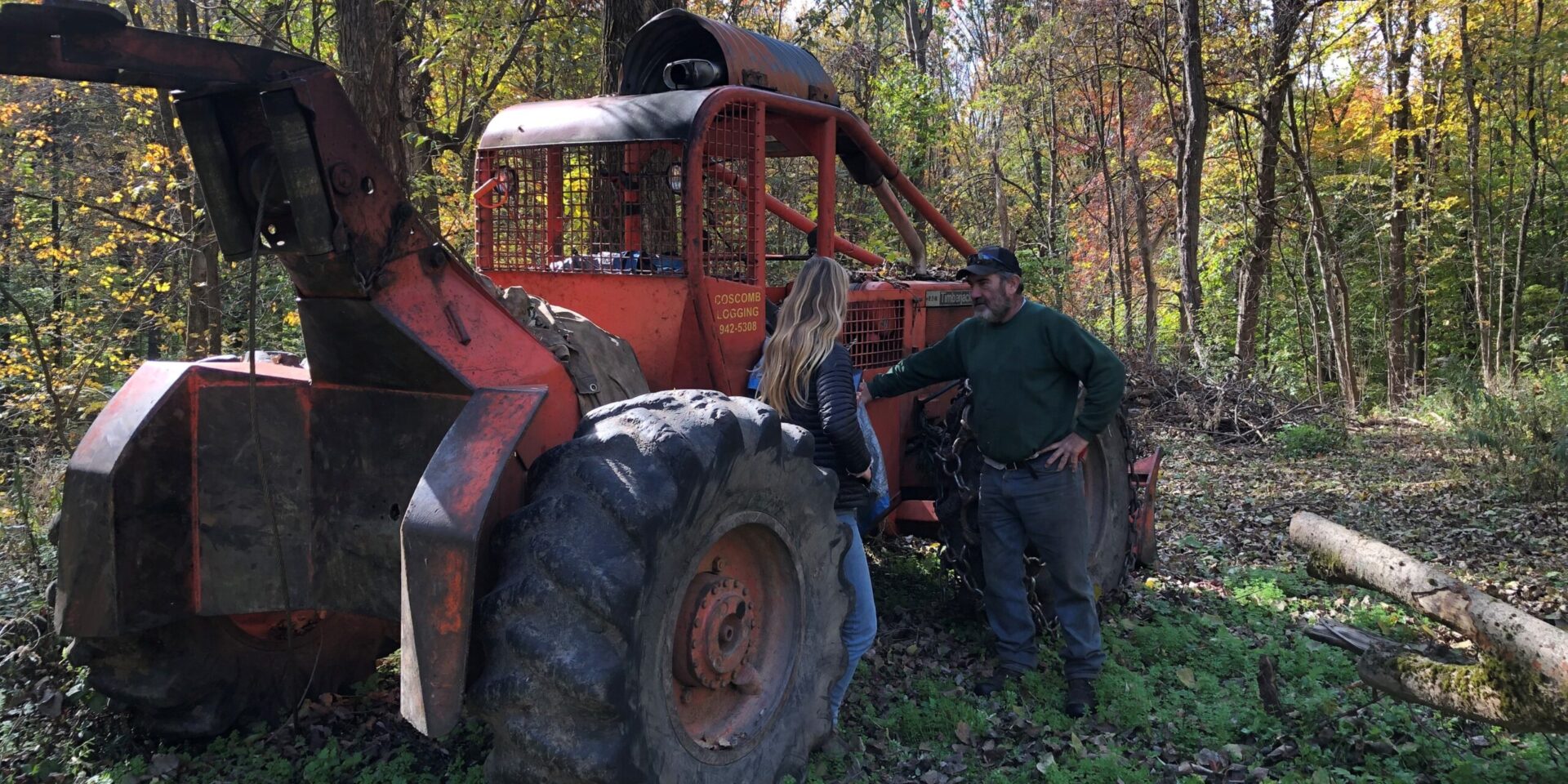The Northeast Center allocates funds each year exclusively for exploring “emerging issues”; relevant health and safety concerns impacting our communities. Last year, our interests focused on the perspectives of loggers in New York, West Virginia, and Pennsylvania. Most of our logger safety and health research has taken place in Maine due to the industry’s impact on the state’s economy and the large number of loggers in Maine. However, we recognize the importance of listening to and learning from loggers across the Northeast.
We interviewed 10 loggers in each state, a total of 30 interviews, with both conventional and mechanized loggers. Madeleine Zenir, a Research Coordinator at the Northeast Center, completed the New York interviews, and Pat Donnelly from West Virginia University completed the interviews in West Virginia and Pennsylvania. The interviews followed a guide that included general questions about the logging industry and how it is changing, health and safety concerns, and work-related injuries and stress. Upon completion, interviews were transcribed and coded to highlight recurring themes.
The following themes were the most evident and common among the interviews:
- The instability of the timber market contributes to stress.
- High equipment costs contribute to financial stress.
- Long days sitting in machinery pose health risks (specific to mechanized operations).
- Concern for a lack of required training; higher training standards might further professionalize the industry (among NY loggers mostly).
Speaking with this group of loggers confirmed the understanding that the mechanization of logging has completely transformed the industry. While working conditions are much safer now that most loggers aren’t hand-felling trees with chainsaws, they are at much higher risk of cardiovascular disease and musculoskeletal issues, such as carpal tunnel. Mechanized loggers also have the added pressure of meeting high yields and long work days due to high equipment costs. The conventional loggers we spoke to also shared valuable insights into the decreasing number of smaller logging businesses and their concerns for the industry’s future.
These interviews were a great way to expand our understanding of logger health and safety concerns beyond Maine. Our findings are important to expanding future research at NEC and will help us keep loggers in our region healthy and safe at work.


